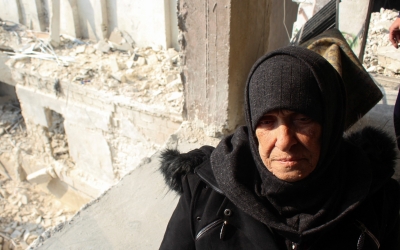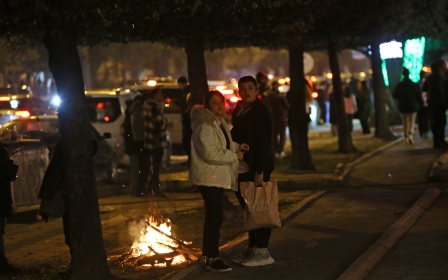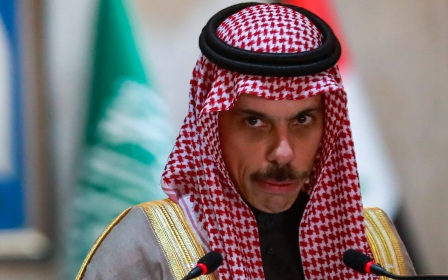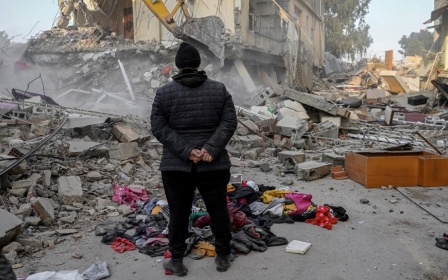‘Earthquake diplomacy’: Assad’s regional isolation diminishes following Oman visit
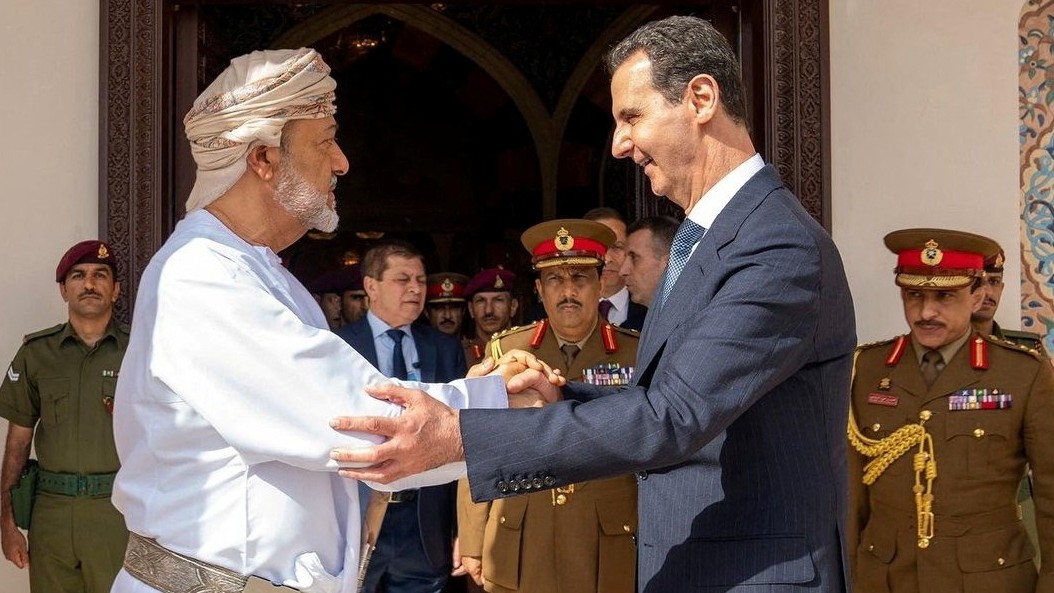
Syrian President Bashar al-Assad's second regional trip abroad in 12 years has been branded as an opportunity to end his regional isolation.
Assad travelled to Oman on Monday and met with Sultan Haitham bin Tariq, in the latest gesture of rehabilitation for the Syrian president in the aftermath of the deadly earthquake that killed more than 5,900 people in the north of his country earlier this month.
Oman was among Arab countries that withdrew their ambassadors to Syria in 2012 following Assad's violent repression of the anti-government uprising, a conflict that has killed at least half a million people and displaced 13 million internally and externally.
'Visits to the UAE and Oman have been important to [Assad's] image and process of rehabilitation in the eyes of Arab officialdom'
- Giorgio Cafiero, Gulf State Analytics
Muscat, however, maintained diplomatic contacts with Damascus, and in 2020 became the first Gulf state to reinstate its ambassador to Syria.
“The Turkey-Syria earthquake has much potential to result in ‘earthquake diplomacy’, accelerating this process of more governments in the Middle East engaging with Assad as though he is a ‘normal’ Arab head of state,” Giorgio Cafiero, CEO of Washington-based geopolitical risk consultancy Gulf State Analytics said.
New MEE newsletter: Jerusalem Dispatch
Sign up to get the latest insights and analysis on Israel-Palestine, alongside Turkey Unpacked and other MEE newsletters
Arab states have been quick to accelerate the thaw in relations with Assad following the earthquake.
Oman's ruler on Monday expressed his wish that all Arab countries would restore their ties with Syria. Several Arab countries, including Saudi Arabia and the United Arab Emirates, have already reversed their diplomatic boycott of the Assad government and sent aid to Syria following the 6 February quake.
The shifting regional winds have been swift over the last two weeks. Saudi Arabia chartered its first official flights since it broke relations with Damascus in 2012 to deliver aid following the earthquake.
The UAE followed suit with aid, and Jordan's foreign minister, Ayman Safadi, paid an official visit to the country last week, the first since the Syrian civil war started more than a decade ago, ostensibly to show support following the earthquake.
Considering the UAE and Saudi Arabia at one time funded rebels to overthrow Assad, the turnaround has been an important realignment and a natural disaster that politically at least has proved fortuitous for Damascus.
Last year, Assad made his first trip to the region, visiting the UAE and meeting Abu Dhabi's ruler Mohammed bin Zayed Al Nahyan, who in May became president of the UAE.
“Within this context, visits to the UAE and Oman have been important to his image and process of rehabilitation in the eyes of Arab officialdom," Cafiero told Middle East Eye.
Mauro Primavera, a researcher at Oasis International Foundation working at the Catholic University of Milan with a focus on Syria, places these countries, including Algeria, in a small but steadily growing pro-Damascus camp.
"These pro-Damascus countries view, in pragmatic terms, Bashar Assad as the unique winner of the war and, by supporting the regime, they hope to acknowledge this fait accompli in the Arab scenario," Primavera told MEE.
Assad's 'grand prize'
The visit to Oman is also a friendlier terrain for Assad but the benefit that could accrue to Assad in the near term is limited, said Primavera.
The earthquake might start a process of more embassies opening in Damascus and reverse the long-standing isolation, "but it will hardly reverse the current Syrian economic situation," the analyst added.
"Investing in Syria is risky and the re-construction process is mainly managed by the two main
state sponsors of Assad, Russia and Iran," he said. "In addition, further devastation brought by the earthquake and the worsening of the humanitarian crisis will increase the overall cost of the reconstruction process."
Oman, for its part, has long opposed regional and international efforts to isolate the Syrian government, said Cafiero. "Having never severed diplomatic relations with Damascus throughout the Syrian crisis, Muscat has been engaging Assad’s regime for years and trying to help the parties in Syria move toward a political resolution and lasting peace," he told MEE.
The shift to rehabilitate Assad also saw Egypt's President Abdel Fattah el-Sisi speak by phone for the first time following the earthquake.
Hopes that the prospects for opening up would temper Assad's attempts to seize back rebel-held Idlib and reduce hostilities were dashed as Damascus bombed opposition-held areas hours after the earthquake.
Cafiero argues that the current warming between Assad’s government and various Arab states illustrates that the regional governments are engaging with each other "in pragmatic ways which are quite transactional and less focused on promoting ideological agendas or standing up for various causes at the expense of other interests.”
While the UAE has pledged more than $100m in aid to Syria and Assad’s red carpet treatment in Muscat are notable diplomatic victories, Damascus will be buoyed by the idea that other regional governments could follow suit.
The political cost of meeting Assad in the region is diminishing fast, but Cafiero believes that “his grand prize will be having Syria back in the Arab League”.
Middle East Eye delivers independent and unrivalled coverage and analysis of the Middle East, North Africa and beyond. To learn more about republishing this content and the associated fees, please fill out this form. More about MEE can be found here.



